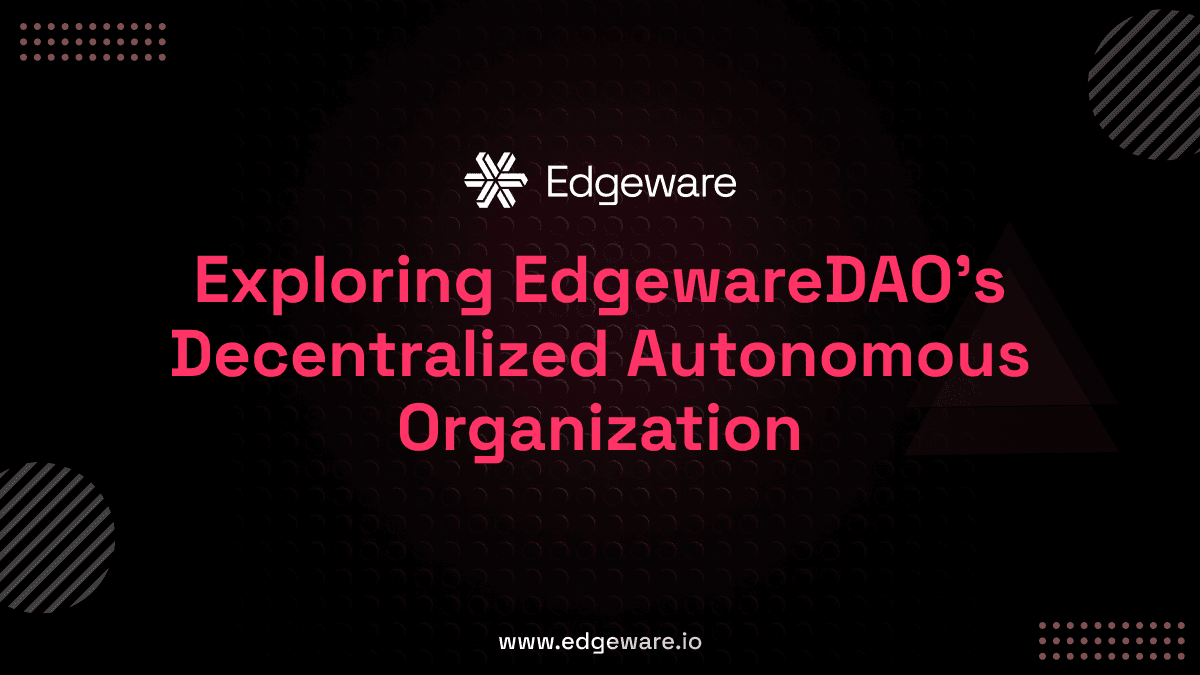2023-11-22
Unlocking the Potential of Governance: Exploring EdgewareDAO's Decentralized Autonomous Organization

Introduction
Governance is an essential aspect of any organization, whether it be a traditional corporation or a decentralized network. It defines how decisions are made, how resources are allocated, and ultimately shapes the direction and success of the entity. In the world of blockchain, governance has taken on a new level of significance with the rise of decentralized autonomous organizations (DAOs). One such DAO that has been making waves in the blockchain space is EdgewareDAO.
What is EdgewareDAO?
EdgewareDAO is a decentralized autonomous organization built on the Edgeware network - a smart contract platform that allows for the creation and execution of decentralized applications (dApps). At its core, EdgewareDAO is a community-driven governance system that empowers token holders to actively participate in decision-making processes that guide the direction and development of the Edgeware network.
How does EdgewareDAO work?
EdgewareDAO operates on a Proof-of-Stake (PoS) consensus mechanism, where token holders can stake their tokens and participate in the decision-making process. By doing so, token holders gain voting rights and the ability to propose, vote on, and implement changes to the network's parameters, protocols, and development roadmap. This democratic and transparent governance system ensures that decisions are made collectively and align with the interests of the community.
Benefits of EdgewareDAO's Governance Model
- Democratized Decision-Making: EdgewareDAO brings together a diverse community of participants, ensuring that decisions are made in a fair and inclusive manner. By allowing token holders to have a say in the network's development, EdgewareDAO creates an environment of shared ownership and promotes the collective betterment of the ecosystem.
- Transparency and Accountability: EdgewareDAO leverages blockchain technology to provide full transparency in the decision-making process. Every proposal, vote, and transaction is recorded on the blockchain, enabling participants to track, verify, and hold each other accountable. This fosters a culture of trust and accountability within the community.
- Flexibility and Adaptability: Unlike traditional centralized organizations, EdgewareDAO is designed to be agile and adaptable. Through on-chain governance, the network can evolve and upgrade seamlessly, ensuring that it remains up-to-date with the latest developments in blockchain technology. This flexibility allows for swift responses to changes in the ecosystem and encourages innovation.
- Community Ownership and Value Capture: By actively participating in EdgewareDAO, token holders not only gain the ability to shape the network's future but also have a direct stake in its success. As the network grows, the value of the tokens held by participants appreciates, creating a sense of community ownership and aligning the interests of all stakeholders.
Conclusion
EdgewareDAO's decentralized autonomous organization represents the future of governance in the blockchain space. By involving token holders in the decision-making process and leveraging the transparency and security of blockchain technology, EdgewareDAO fosters a vibrant and engaged community that fuels innovation and collaboration. As the potential of governance is unlocked through EdgewareDAO, we can expect to see increased democratization, transparency, and sustainability in blockchain ecosystems.